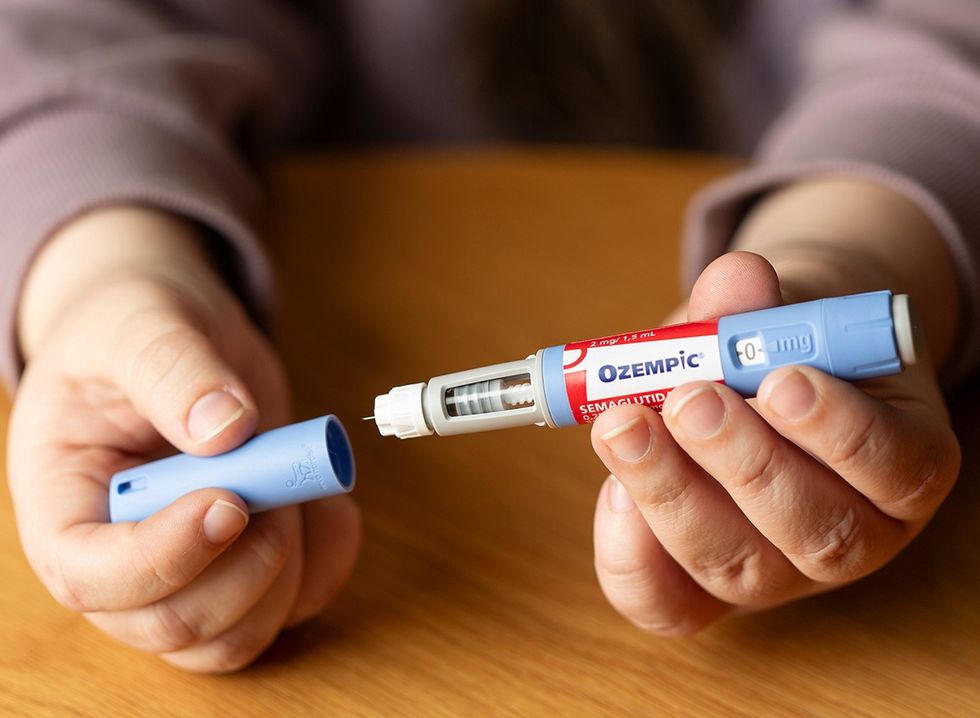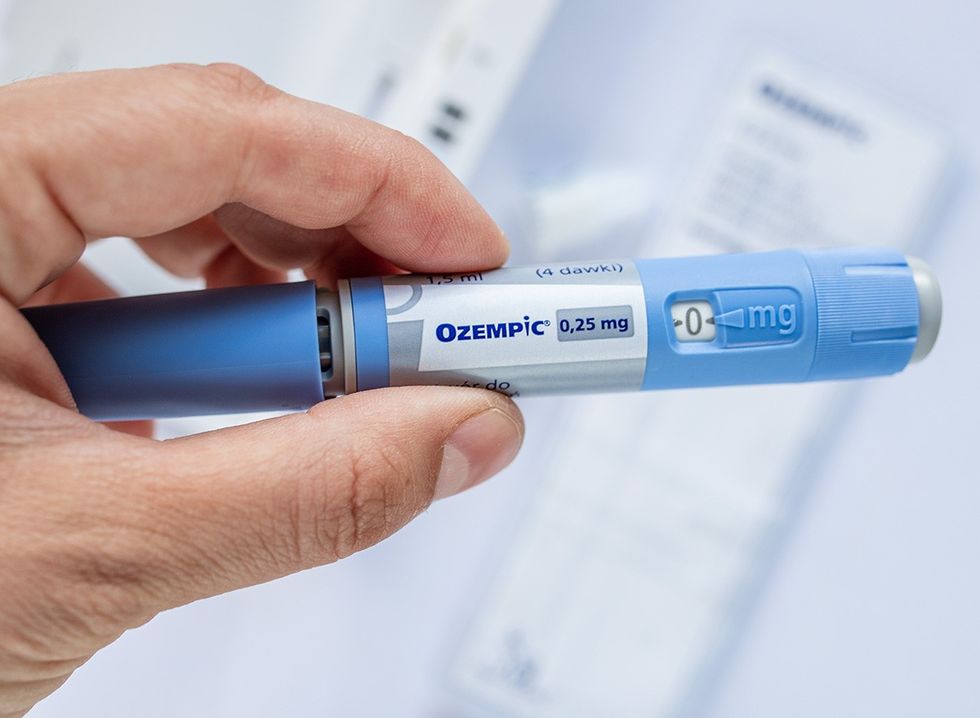Have you been seeing Berberine all over your social media feed lately? With promises of natural weight loss and better health, this supplement has captured attention worldwide. Before you jump on the bandwagon, here's what you need to know about "nature's Ozempic."
Dr. Paul Zalzal and Dr. Brad Weening are orthopedic surgeons and members of the Royal College of Physicians and Surgeons of Canada. Known for making complex medical topics accessible, they join medical researchers in examining Berberine's benefits, risks, and scientific evidence.
What Is Berberine?
"Berberine is an ancient Chinese medicine that's been around for centuries," explains Dr. Zalzal. According to WebMD, it's a chemical compound found in several plants, including European barberry, goldenseal, goldthread, Oregon grape, phellodendron, and tree turmeric. Dr. Weening adds that it produces a bitter-tasting yellow substance that's been used in traditional medicine for thousands of years.
Why Is It Trending Now?

"People have lost faith in traditional medicine and are looking for natural alternatives," Dr. Weening explains. "Plus, everyone wants a hack—how to live longer, lose weight, or eat poorly but still stay healthy."
The claims are impressive: "They call it nature's Ozempic because of weight loss," Dr. Zalzal says. "Everyone's saying you can lose weight with this. It can help your cardiac health, it can help your PCOS symptoms, it can lower your cholesterol." He adds that it's also claimed to have anti-inflammatory benefits.
How Does Berberine Work?

"It's important to understand that berberine is not actually 'nature's Ozempic,'" Dr. Zalzal emphasizes. While Ozempic works by binding to GLP-1 receptors to make you feel full, berberine works differently.
WebMD explains that berberine activates an enzyme called AMP-activated protein kinase (AMPK), sometimes called the "metabolic master switch." Dr. Zalzal adds that this mechanism is "more like metformin, potentially helping with insulin resistance."
What Does Science Say?

Both doctors stress the limited scientific evidence. "Most studies showing berberine's benefits are small, short-term, and poorly designed," Dr. Weening notes. Dr. Zalzal adds, "Just because a study shows something, it doesn't mean it's truth. Science has a big gray area... there's way more bad studies out there than good studies."
RELATED: A Nutrition Coach Shares 5 Fat Loss Rules That Actually Work for Everyone
What Are the Benefits?

However, WebMD reports that research shows potential benefits for:
- Type 2 diabetes
- High cholesterol
- High blood pressure
- Polycystic ovary syndrome (PCOS)
- Weight loss
- Heart disease.
What Are the Risks?

" Supplements aren't well-regulated by the FDA or Health Canada," warns Dr. Zalzal. "You have to be careful when taking a supplement, recognizing that no one is looking out for your best interests."
Critical warnings include:
Pregnancy: "Do not use it if you're pregnant," Dr. Zalzal says, as it crosses the placenta.
Drug Interactions: WebMD notes potential interactions with diabetes medications, blood pressure medications, and certain antibiotics.
Side Effects: Common issues include "diarrhea, constipation, and gas," according to Dr. Zalzal.
Dosage: WebMD indicates typical doses range from 900 to 1,500 mg daily, divided into 2-3 doses, but this can vary based on individual factors.
What's the Bottom Line?

"There's no quick fix," Dr. Zalzal states firmly. "Nothing beats exercise and monitoring your food intake." Dr. Weening adds an important perspective: "There's no one exactly right diet. Everybody is so different. Even the way we process foods, what it does to our blood sugars with certain foods, it's all very, very different."
RELATED: Fitness Expert Reveals 4 Addictive Habits That Made Her “Unrecognizable”
What's the Bottom Line?

The one universal truth? "Portion control matters across any diet," says Dr. Zalzal. Dr. Weening agrees: "If you eat too many calories, it's probably going to be a problem."
If you're considering berberine, experts recommend:
- Consulting your healthcare provider first.
- Regular monitoring if taking it long-term.
- Periodic liver function tests.
- Blood sugar monitoring for diabetic patients.
- Immediate discontinuation if adverse effects occur.
As Dr. Zalzal reminds us, "You are in charge of your own health." And if you enjoyed this article, don't miss 20 Incredible Ozempic Success Stories of All Time.








 Combining Natural GLP-1 Boosters for Maximum ResultsShutterstock
Combining Natural GLP-1 Boosters for Maximum ResultsShutterstock Myth 4: Fat Is Bad For Your HeartShutterstock
Myth 4: Fat Is Bad For Your HeartShutterstock

 These Were Game ChangersShutterstock
These Were Game ChangersShutterstock Creating Sustainable HabitsShutterstock
Creating Sustainable HabitsShutterstock DinnerShutterstock
DinnerShutterstock Wegovy vs Ozempic: Pros and Cons for Weight Loss TreatmentShutterstock
Wegovy vs Ozempic: Pros and Cons for Weight Loss TreatmentShutterstock







 Shutterstock
Shutterstock Shutterstock
Shutterstock Shutterstock
Shutterstock Shutterstock
Shutterstock Shutterstock
Shutterstock Shutterstock
Shutterstock Shutterstock
Shutterstock Shutterstock
Shutterstock Shutterstock
Shutterstock Shutterstock
Shutterstock Shutterstock
Shutterstock Shutterstock
Shutterstock Shutterstock
Shutterstock
 Overdoing Pre-WorkoutShutterstock
Overdoing Pre-WorkoutShutterstock She Eats Balanced Blood Sugar Meals and Eats Veggies FirstShutterstock
She Eats Balanced Blood Sugar Meals and Eats Veggies FirstShutterstock Sign 6: Digestive DistressShutterstock
Sign 6: Digestive DistressShutterstock Shutterstock
Shutterstock If You Lose Weight Soley Because of Ozempic, You Are Likely Losing MuscleShutterstock
If You Lose Weight Soley Because of Ozempic, You Are Likely Losing MuscleShutterstock The Right Way to StopShutterstock
The Right Way to StopShutterstock Some People Want to Say the Drugs Are “Dangerous” and “Unnatural” and Are Marketing Their Own AlternativesShutterstock
Some People Want to Say the Drugs Are “Dangerous” and “Unnatural” and Are Marketing Their Own AlternativesShutterstock The Importance of Medical SupportShutterstock
The Importance of Medical SupportShutterstock Know When to Seek Professional HelpShutterstock
Know When to Seek Professional HelpShutterstock

 Shutterstock
Shutterstock Shutterstock
Shutterstock Shutterstock
Shutterstock Shutterstock
Shutterstock Shutterstock
Shutterstock Shutterstock
Shutterstock Shutterstock
Shutterstock Shutterstock
Shutterstock Shutterstock
Shutterstock Shutterstock
Shutterstock Shutterstock
Shutterstock Shutterstock
Shutterstock Shutterstock
Shutterstock Shutterstock
Shutterstock Shutterstock
Shutterstock Shutterstock
Shutterstock
 Shutterstock
Shutterstock Shutterstock
Shutterstock Shutterstock
Shutterstock Shutterstock
Shutterstock

 I'm a Nutritionist and These 9 High-Protein Snacks Keep My Clients Full While Losing 50 Pounds
I'm a Nutritionist and These 9 High-Protein Snacks Keep My Clients Full While Losing 50 Pounds
 Shutterstock
Shutterstock 2. Processed FoodsShutterstock
2. Processed FoodsShutterstock Shutterstock
Shutterstock Shutterstock/Prostock-studio
Shutterstock/Prostock-studio Shutterstock
Shutterstock Pro TipsShutterstock
Pro TipsShutterstock Shutterstock
Shutterstock Shutterstock
Shutterstock Shutterstock
Shutterstock Shutterstock
Shutterstock Don’t Drink as Much AlcoholShutterstock
Don’t Drink as Much AlcoholShutterstock Most Women on GLP-1s Are Making a Few Common MistakesShutterstock
Most Women on GLP-1s Are Making a Few Common MistakesShutterstock Soda and Sugary DrinksShutterstock
Soda and Sugary DrinksShutterstock Shutterstock
Shutterstock Eat BreakfastShutterstock
Eat BreakfastShutterstock And Improve Insulin SensitivityShutterstock
And Improve Insulin SensitivityShutterstock Belly Flab Strip Tip: Sugar and Fat Calories Leave Its Mark on Your BodyShutterstock
Belly Flab Strip Tip: Sugar and Fat Calories Leave Its Mark on Your BodyShutterstock Shutterstock
Shutterstock 3. Deep-Fried ItemsShutterstock
3. Deep-Fried ItemsShutterstock